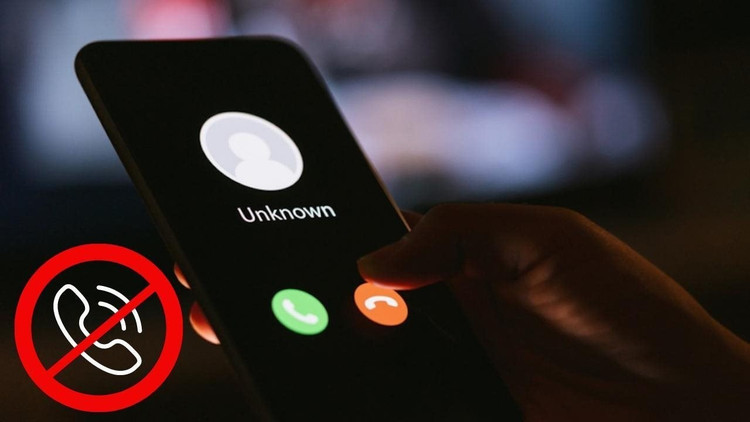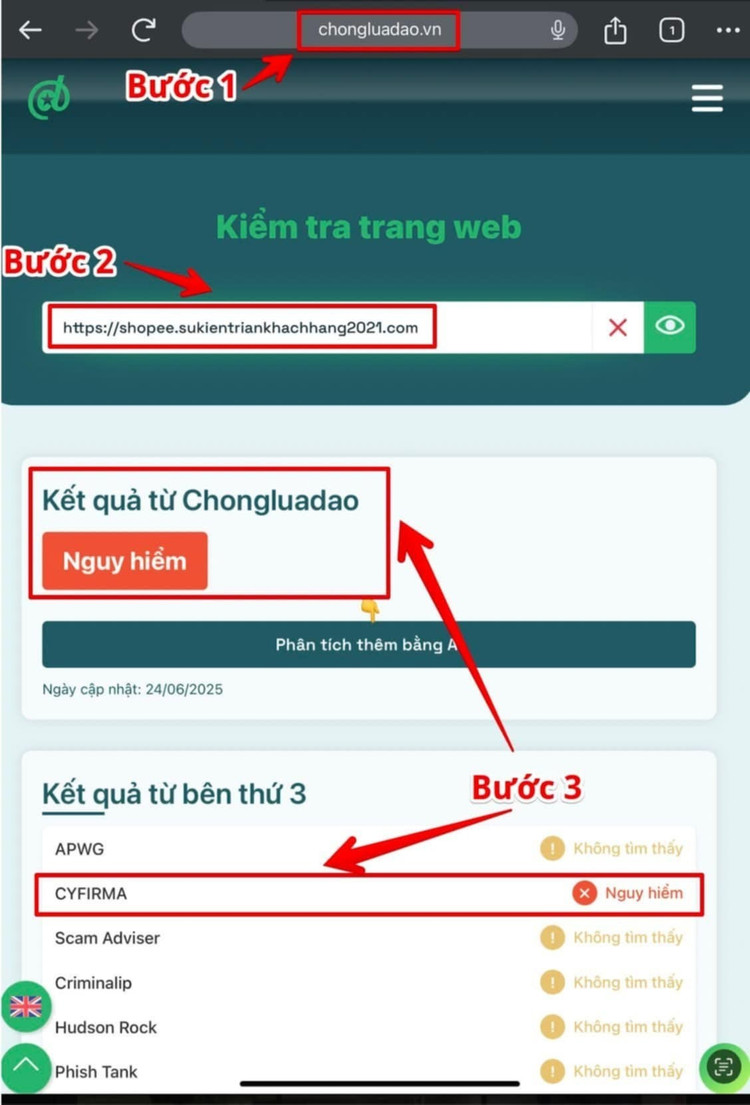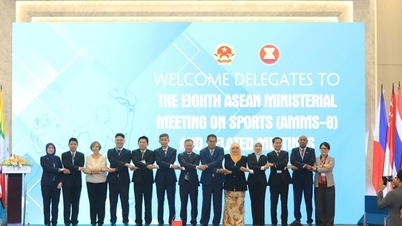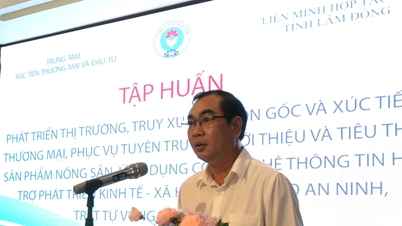Dong Thap Provincial Police said that in the context of technological development, cybercriminals have become sophisticated in taking advantage of people's greed, curiosity and lack of vigilance. In recent times, the form of lottery fraud (or gift fraud) has been on the rise, with the ultimate goal of appropriating property and personal information.
Long Khanh Commune Police, Dong Thap Province, warned that anyone can become a victim of this trick, from young people using social networks to the elderly.
Signs of lottery scams

People can recognize signs of fraud by receiving notifications from unofficial channels. These are winning notifications from strange channels, such as SMS messages, Zalo, Viber, Telegram or Fanpages, websites without blue ticks and with ambiguous names (such as: "Customer Support Center", "Global Gratitude Fund").
The most important sign is the scammer’s request for an “urgent” fee. They will urge the victim to immediately transfer money with names such as “processing fee”, “shipping fee”, “value added tax”, or even “security fee” to receive the gift.
In addition, victims are also notified of winning valuable prizes such as motorbikes, new phones, hundreds of millions of VND). They may also ask victims to click on strange links to enter passwords, OTP codes, provide bank account numbers, or take photos of their ID cards to "complete the prize receiving procedure".
With this trick, the scammer puts psychological pressure on the victim with an urgent and threatening tone, creating a feeling of time scarcity, in order to make the victim panic and act hastily and thoughtlessly.
Long Khanh Commune Police warned that lottery scams not only cause financial losses, but also pose many other serious risks. Specifically, victims face the risk of losing money directly when transferring unreasonable fees as requested by the subject (from several hundred thousand to tens of millions of VND).
In addition, when providing ID card, phone number, email as requested, people's information will be used for other illegal purposes, including opening virtual bank accounts, borrowing black credit or selling to third parties. If providing OTP code or password, victims also face the risk of bank account hijacking, when the scammer will immediately withdraw all the money in the account.
When people click on links or install strange applications, their phone data can be controlled for tracking and theft.
Ms. LTN (34 years old, living in Ho Chi Minh City) said that she received a Zalo message from an account named “National Gratitude Program” with a picture of a Vision motorbike winning certificate and 50 million VND in cash. Trusting the page because it had a familiar logo and many comments saying “thank you for receiving the gift”, she transferred 3 million VND for the “gift delivery fee”. After that, the subject continued to ask for an additional 5 million VND for “gift wrapping insurance” and then cut off contact.
Mr. PVD (45 years old, in Hanoi) said that he received a call from a strange number claiming to be a " Viettel network representative" informing him that he won a customer appreciation gift package worth 100 million VND. The scammer sent a link to "fill in the information to receive the prize". After filling in his full name, ID card number, bank account and OTP code, in just a few minutes, his account was drained of more than 40 million VND.
What to do to protect yourself?
Faced with the above situation, Long Khanh Commune Police advise people to absolutely not pay any fees. It should be noted that no legitimate prize-winning program requires winners to pay fees before receiving prizes, so people should stop all transactions when there is a request to transfer money.
With this form of fraud, the police agency recommends that people carefully check the source of the notification by looking up information about the program and the organizing company on the website and official, reputable media channels. If you cannot find it, the information may be a scam.
Authorities also recommend that people absolutely do not click on strange links, scan QR codes of unknown origin or provide sensitive information such as OTP codes, passwords, PIN codes to anyone. When detecting signs of fraud, people should immediately block the phone number or account that contacted and report the incident to the nearest police agency for timely handling.
Mr. Vu Ngoc Son, Head of Technology Department, National Cyber Security Association, warned that online fraud attacks will continue to be rampant in 2025. Besides measures from management agencies, users still need to raise their vigilance and safety skills when participating in cyberspace.
Do not share personal information with unknown people or services. Carefully verify any calls or exchanges related to money transfers. Use the nTrust anti-fraud app to filter and block fraudulent phone numbers and malicious websites.
The Anti-Phishing Project has just updated its website to a new version, adding a chatbot and an AI tool to identify scam sites on the Internet.
Users can access the website chongluadao.vn and enter the link to be checked. The system will compare the link with the Anti-Fraud database and third-party partners, then return the result if the website is safe, dangerous or has no clear data.
If you want to use AI, just click Analyze more with AI. At this point, the tool will analyze the website based on many different factors such as suspicious domain names, illegal content, containing risky links, using unusual hosting...
From the above data, AI will synthesize the factors and give a risk assessment on a 10-point scale. Suspicious details about information and images on the website are also analyzed and displayed on the results page.

Source: https://khoahocdoisong.vn/ngo-trung-thuong-lon-hoa-ra-sap-bay-lua-dao-tren-mang-post2149059531.html




![[Photo] General Secretary To Lam attends the opening of the 1st Government Party Congress](https://vphoto.vietnam.vn/thumb/1200x675/vietnam/resource/IMAGE/2025/10/13/1760321055249_ndo_br_cover-9284-jpg.webp)

















![[INFOGRAPHIC] Rare big-headed turtle 'strayed' into a house in Quang Ngai](https://vphoto.vietnam.vn/thumb/402x226/vietnam/resource/IMAGE/2025/10/13/1760325263635_thumb-rua-dau-to-quy-hiem-jpg.webp)

















































































Comment (0)